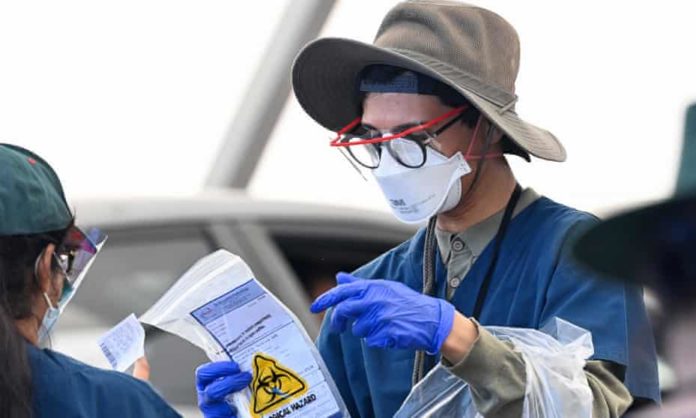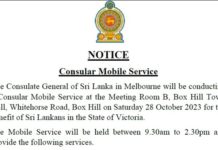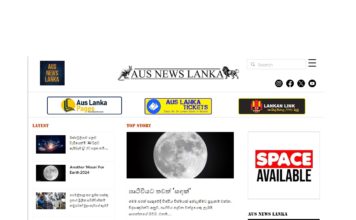Victoria records 51,356 new coronavirus cases, nine deaths NSW records 45,098 new COVID cases, 9 deaths as new restrictions come into force
Victoria has recorded 51,356 new coronavirus cases as well as nine deaths, the day after a new self-reporting system was implemented for those who test positive on a rapid antigen test rather than a PCR test.
In a note on today’s figures the government said the large daily result, – which is a record – was driven by a backlog of self-reporting from rapid tests on a new online reporting platform.
“Most people who reported a positive rapid antigen test got that result earlier in the week, and reported it when the webform opened yesterday,” the government said.
“The number of people who actually received their positive rapid antigen test result yesterday was 5923.”
The number of people in hospital with COVID-19 was steady at 644, as was the number in intensive care (106) and on ventilators (24).
There were 20,776 vaccine doses administered at state sites on Friday.
Rising numbers this week prompted the government to reimpose density limits on hospitality venues, while businesses and supply chains feel the brunt of isolation requirements and sick staff unable to work.
NSW has reported 45,098 new cases of COVID-19 and nine deaths as new restrictions come into force for the next three weeks in an attempt to curb the virus surge.
There are 1795 coronavirus patients in hospital, a slight increase, with 145 in intensive care.
There were 116,915 tests in the 24-hour period to 8pm on Friday, up from 112,725 the previous day.
From Saturday until January 27, singing and dancing will be prohibited in hospitality venues, entertainment facilities and major recreation facilities, excluding weddings and performances. This includes pubs, clubs, nightclubs, bars and restaurants.
Upcoming major events will be risk assessed, but organisers should assume they can proceed unless contacted by NSW Health.
Other measures introduced late last month – including mandatory indoor masks, a two square metre density limit for hospitality venues, and mandatory QR code check-ins – also remain in force until January 27.
People have been encouraged to use “common sense” by limiting large household gatherings, as well as gathering outdoors where possible.
NSW will also update its mandatory vaccine rules, to require people who were previously required to be double-dosed – including health staff, aviation workers and teachers – to receive their booster when eligible.
Sources n Credits – TheAge /SMH / Gradian















